Data filters
Configuring Data Filters
Data Filters can be configured to restrict records visibility based on defined criteria. The configuration can be done by adding and deleting a filter condition.
The Initial filters window can be opened by clicking on the Add filters button provided in the data source tab tool bar. You can also use the keyboard shortcut Ctrl + I to open the initial filters window.

Adding a filter condition
Add a filter condition through clicking the Add button in the Filters window.
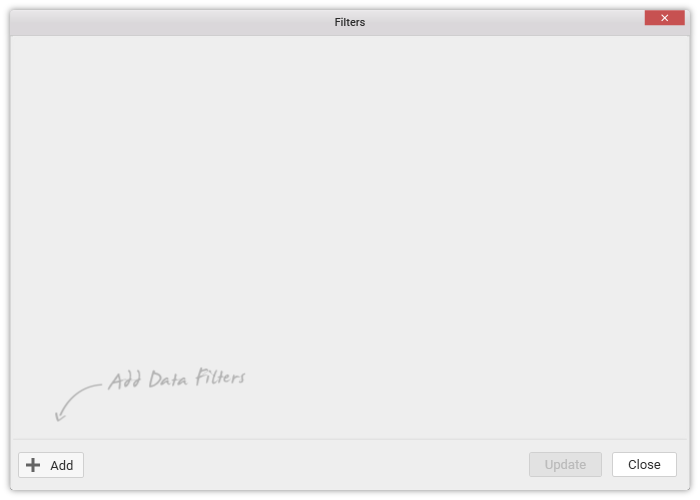
Now, a filter condition will get added by default like below:
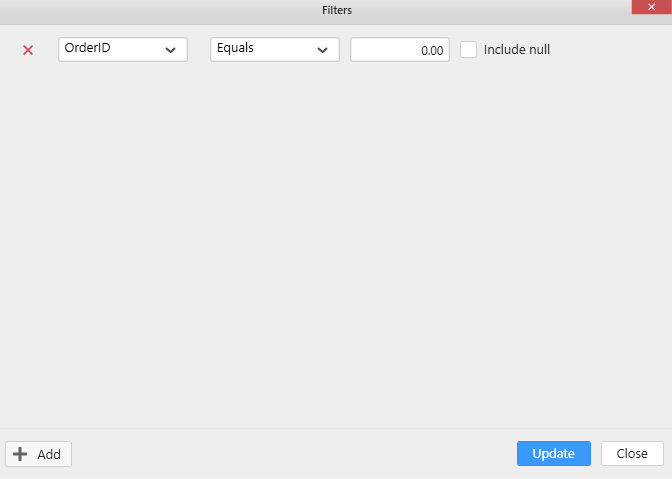
You can filter values with or without Null by checking or unchecking the Include null option. If you check this option, only Equals and Does Not Equal condition will be shown like below. Based on these conditions, you may filter values with or without Null.
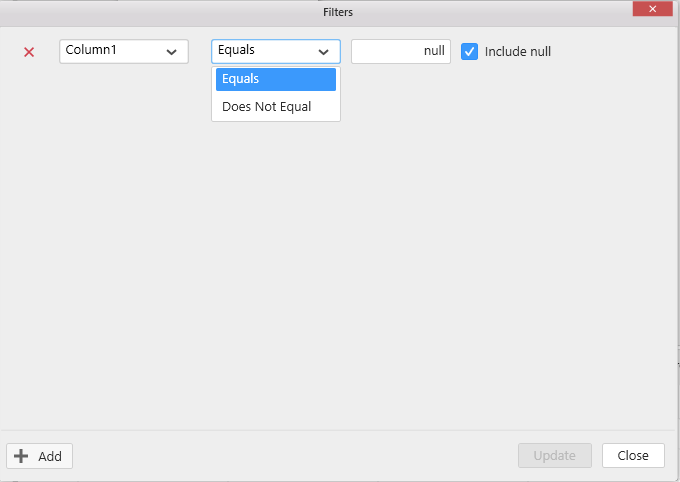
Below example shows column with Null values.
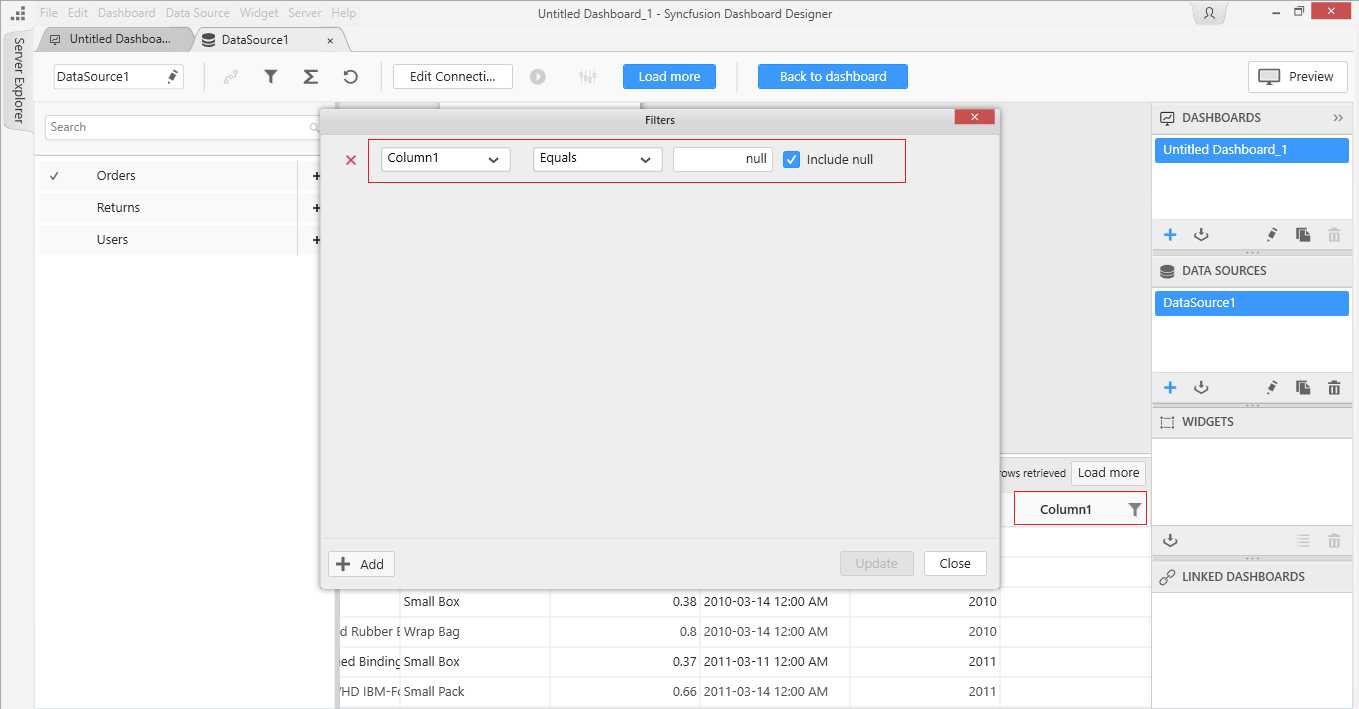
Modify the condition as you require and define criteria. The condition can be defined based on the column. Based on its data type, the parameters to define will differ.

With the date time type or text type column like above, you may get a toggle button TOP ‘N’ at right, to enable the Top N filter to configure the field and the condition by which it has to be applied.
The options below are displayed when selecting text type columns.
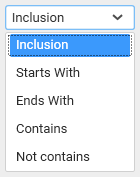
The options below will be displayed when applying the Top ‘N’ filter based on the numeric column.


Below example shows top 5 freight data of a city.

For numeric type column, the parameters will be like below:

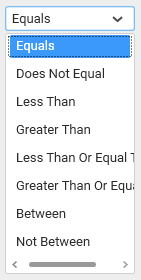
Below example shows data of freight whose values are greater than 500.
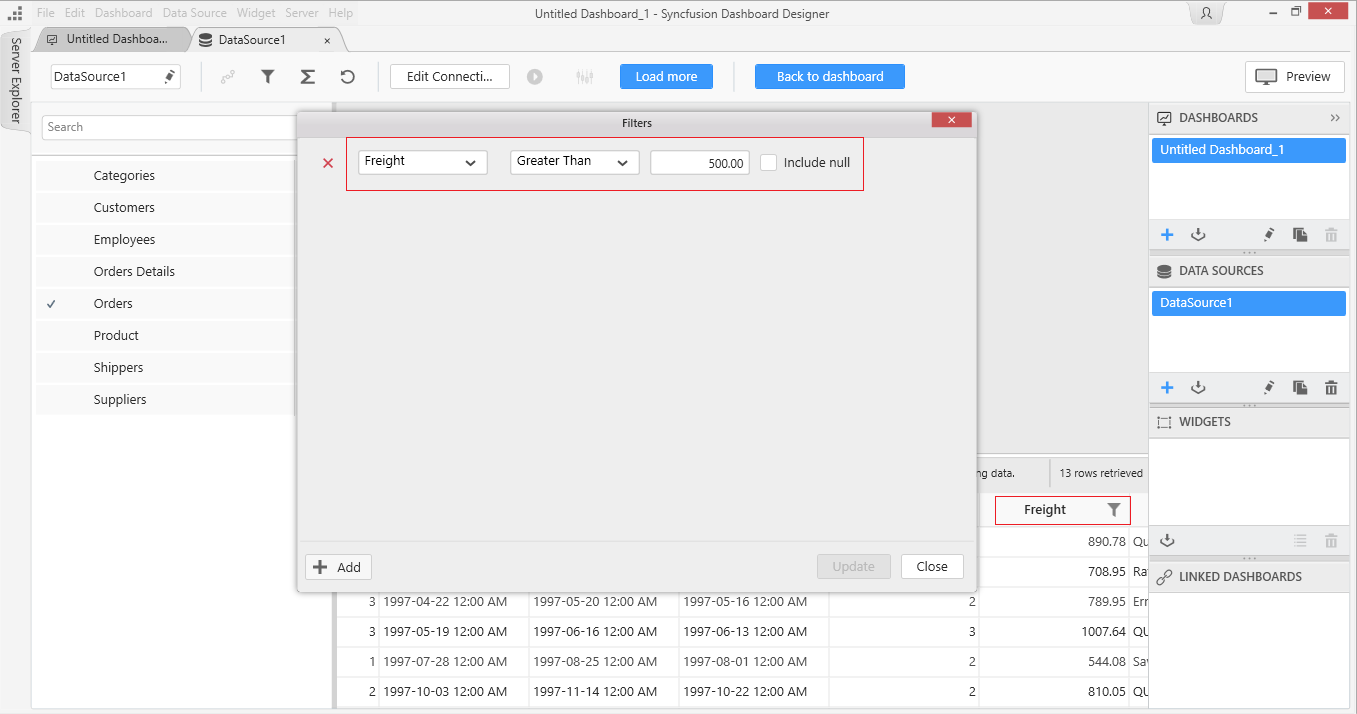
For text type column, the parameters will be like below.

Using the Include option, you can filter particular value(s) from a text column. To do this, uncheck all items, select the required value(s) and choose Include option. By default, Include option will be selected.
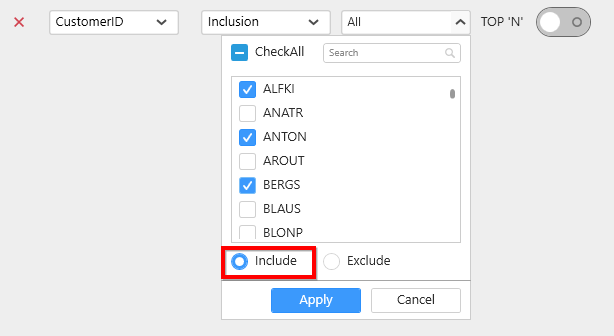
Using the Exclude option, you can filter your text column without specific value(s). To do this, uncheck all items, select your required value(s) and choose Exclude option.
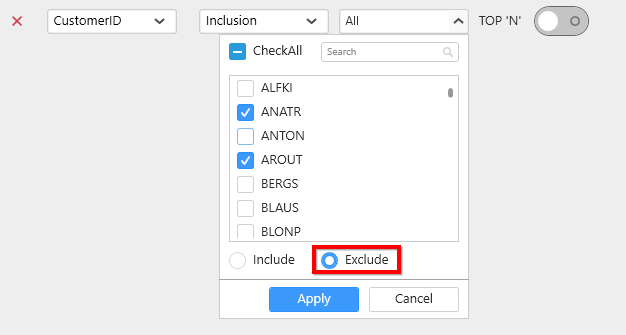
Below example shows data of CustomerID whose values is ALFKI.
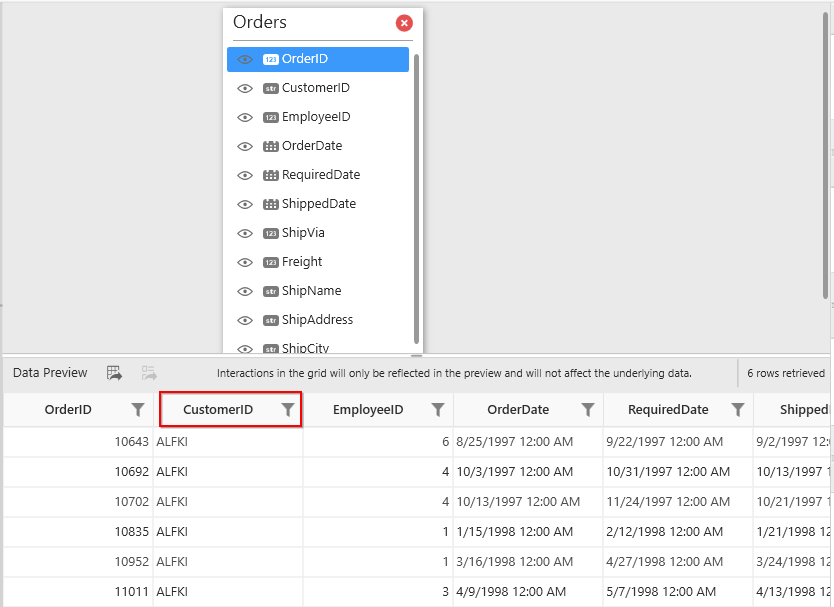
For date time type column, the parameters will be like below:

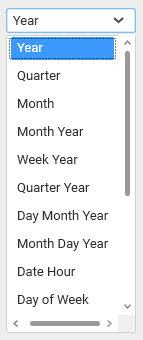
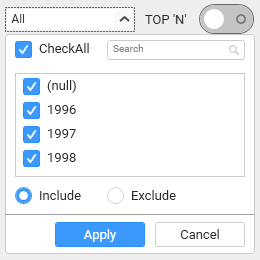
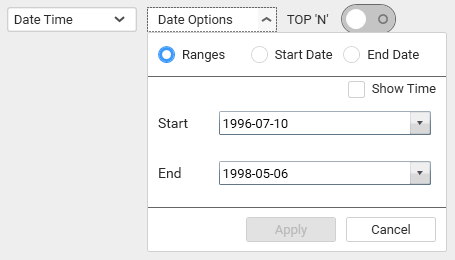
Below example shows data within the applied date range.
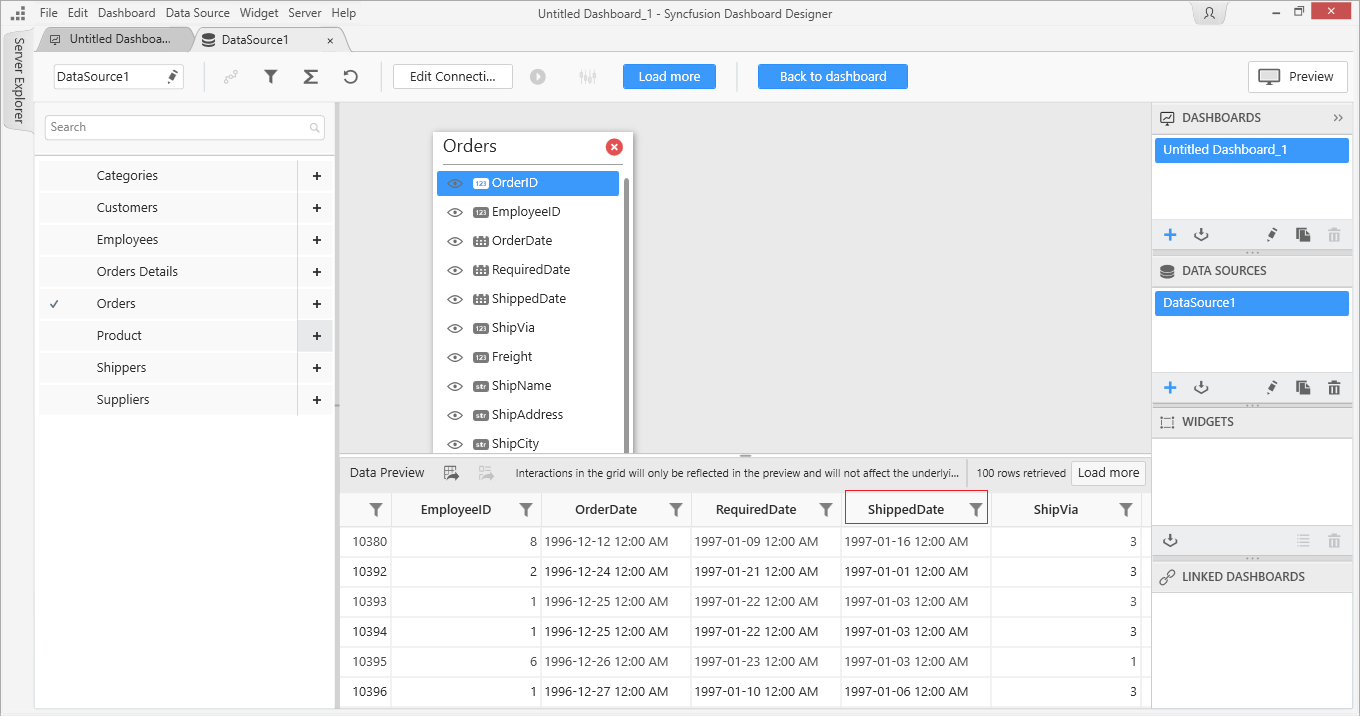
Add more than one condition if you prefer, through clicking the Add button.
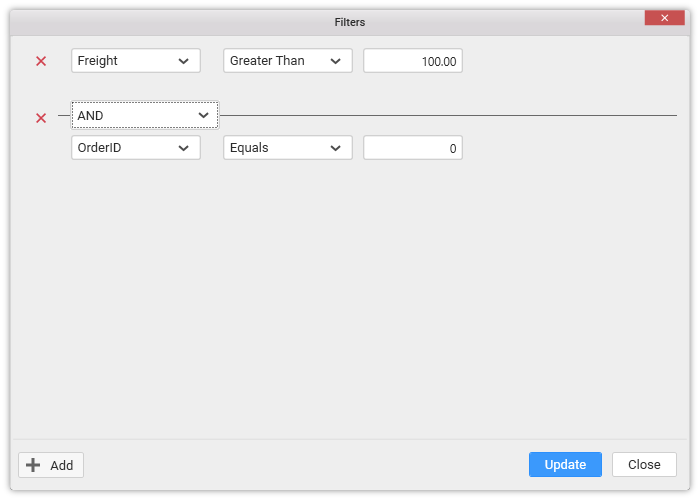
By default, AND operation will be handled in between two conditions. However, you may change it to any of the below:
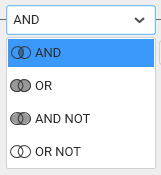
However, this operation cannot be changed, when you have the TOP N option enabled like below:

Click Update to save the defined data filter conditions.
Click Close button or the Close icon at top right corner of the window to close the Filters window.
Deleting a filter condition
You can remove a filter condition by clicking the close icon (highlighted below) at left of the respective filter condition.

Configuring Data Filters for SSAS Data source
NOTE
Currently, Data filters for SSAS data source can be defined only through string type columns.

Adding a filter condition
Expand the dimension and drop and drop a hierarchy or level to the right area to add a filter condition.
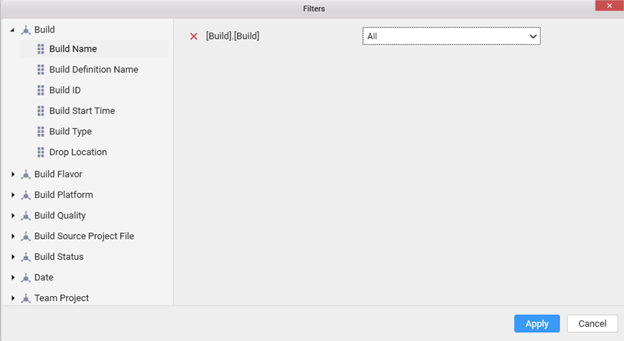
Add more than one filter condition if you prefer, through drag and drop.
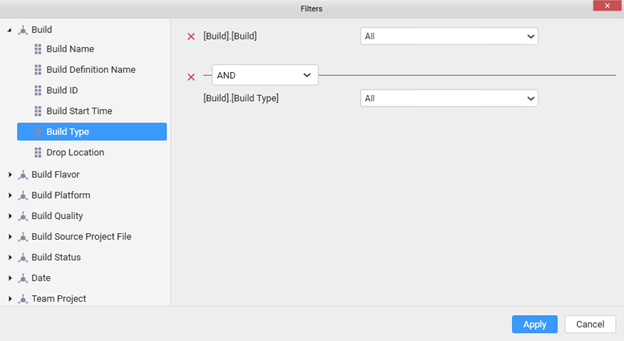
By default, AND operation will be handled in between two conditions as other connection. However, you may change it to any of the below:
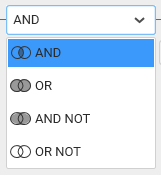
Removing a filter condition
You can remove a filter condition by clicking the close icon at left of the respective filter condition.

